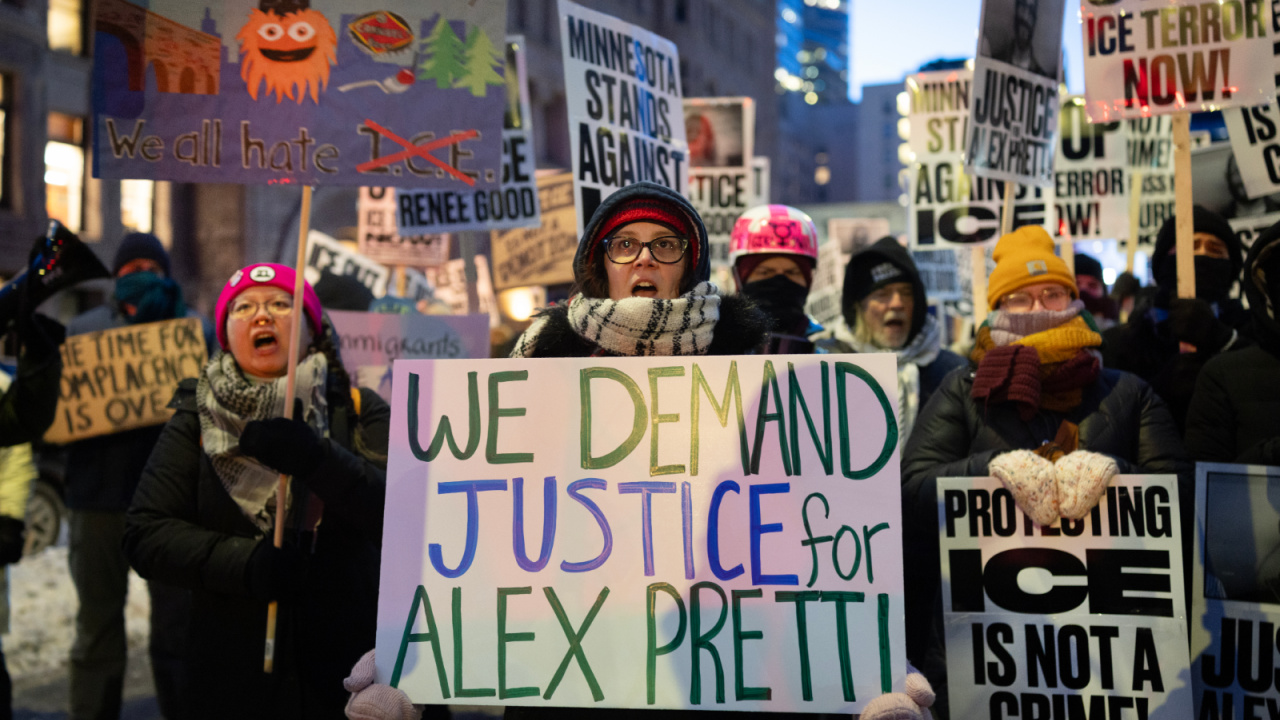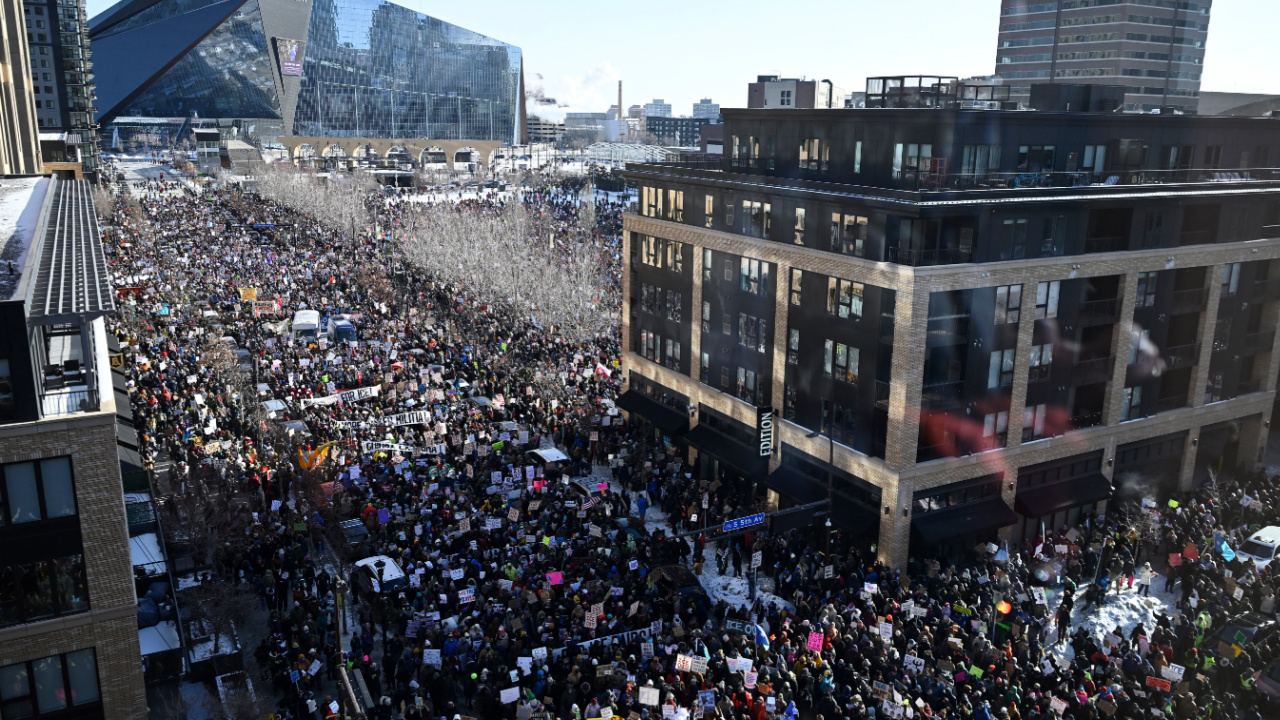
Jalisco Shows Its ‘Pride’ With New Law Changes and Hosting the Gay Games
On April 7, 2022, the Mexican state of Jalisco, home to major cities like Guadalajara and Puerto Vallarta, updated their civil code to define marriage as “the union of two people freely and in a community with respect, mutual help and equal rights and obligations,” according to Mexico Daily Post.
At the same time, lawmakers introduced something equally as important to the civil code: an official recognition of transgender persons and their right to update their legal documents, including their birth certificate. Sanctions against conversion therapies, which are harmful practices that intend to change a person’s sexual orientation or gender identity, were added too.
Alex Serratos, a Guadalajara-based LGBTQ+ activist, cultural developer and CEO of nonprofit Taller Ciudad AC, was very happy with the ruling. “Many people have been fighting for this cause for 40 years,” he said. “I’m very proud, not just to be part of the LGBT community, but to be part of this cultural LGBT and diversity movement [in the state], which involves a lot of straight people who are close to the community. I feel very embraced by them.”
Same-sex marriage has been legal in Jalisco since 2016, when the Mexican Supreme Court found that Jalisco’s civil code had unconstitutional articles that solely defined marriage between a “man” and a “woman.” The ruling required that the state update its civil code to be inclusive of all gender identities, which is what they did last month.
And for transgender people, especially, the new updates are an incredible step forward.
“This is very important for the transgender community, because they have to fight a lot for their rights,” Serratos said. “Of course, we have a lot of work to do, but Jalisco is the only state in the country that is moving in this direction and is working to look at the laws to see what needs to be changed.”
The updates to Jalisco’s civil code come at a time when we’ve seen drastic setbacks in LGBTQ+ rights in the United States. For perspective, Florida passed it’s “Don’t Say Gay Bill” in March 2022, and in May, the U.S. Justice Department sued Alabama over a law that seeks to criminalize certain medical care for transgender children.
Although Mexico is a conservatively Catholic country, Jalisco has been a refuge of progress and inclusion for the LGBTQ+ community since the 1980s when Guadalajara began hosting a Pride parade. It led Guadalajara to become known as the “gayest city” in Mexico, with many giving it the same moniker for all of Latin America.
Serratos, who grew up in Guadalajara and traveled through Jalisco growing up, especially to the beaches of Puerto Vallarta for family vacations, was surprised as an adult to discover that the rest of Mexico wasn’t as inclusive of LGBTQ+ people.
“I grew up thinking that [LGBT communities] were in all the beaches in the world. I went to Cancun, Acapulco, Los Cabos and many other beaches, and everything is different. They don’t have places for the LGBT community. They don’t have freedom. They don’t have gay bars. They don’t have anything that we have,” he said.
Serratos added that it’s not uncommon to see LGBTQ+ couples in Guadalajara holding hands in the streets or having lunch together. There are plenty of LGBT-owned businesses, art shows and events that focus on the community.
“In Guadalajara, we have a very open community. We are openly gay all the time and you can see many groups of people and many activities in the city around LGBT culture or the arts,” he said. “We grow up thinking that it happens in the rest of the country, but no. Maybe in Mexico City it’s similar, but not as we have it. They have five times the people that we have, but they don’t have five times our LGBT community.”
The open and inclusive environment of Jalisco has encouraged many LGBTQ+ couples to start their own families, like Serratos did. He was one of the first openly gay men in the state who was featured in Mexican magazines for pursuing fatherhood and having a son. The new changes to the civil code may result in even more LGBTQ+ persons taking this path.
“I was the first one but now you can find many LGBT families. I know that because many of them let me know, ‘Hey, did I tell you that I’m expecting?’ In my son’s school, which is a private school, they are very open. We never feel bad about our family,” he said.
All the progressive updates to the civil code come a month after it was announced that the Gay Games (think Olympics for the LGBTQ+ community) will be co-hosted in Guadalajara in 2023. This makes it the first time that this LGBTQ+ sporting and cultural event will be held in Latin America.
Although Hong Kong was initially chosen as the next Gay Games host, the Federation of the Gay Games (FGG) was approached by the Gay Games Hong Kong (GGHK2023) team to look into the possibilities of finding a Co-Host in another part of the world due to Hong Kong’s issues with COVID-19 pandemic travel restrictions in order to allow for a truly inclusive Games.
The thought behind this was, if the situation with travel restrictions to Hong Kong continued, it may make international travel difficult, so finding a Co-Host in a part of the world where people can travel more easily, made sense.
With the FGG’s approval, Guadalajara was named as a “Presumptive Co-Host.” Of the 36 sporting events typically held at the Gay Games, Guadalajara will be hosting 22, as well as potentially a few other sports which are currently under discussion.
Serratos was part of the bidding committee to bring the Gay Games to Guadalajara and is now the communications and marketing director for the event.
“We think this is a great opportunity to show our Mexican and Latin American culture. Many people will come here from Latin American countries, because it is very difficult for Latin American participants to travel to other parts of the world,” he said. “And I think the Latino community in the States and in Canada are going to be very proud to have these games in our region.”
As for participants and fans who visit Guadalajara for the Gay Games, Serratos believes they’ll be surprised by the environment they’ll find.
“I don’t think many people know Guadalajara and I think they are going to be surprised about our city, about our state,” he said. “We have so much to offer. They’re going to feel very happy and comfortable here because we have a very open community.”
The Gay Games will be hosted in Guadalajara at the same time as Dia de los Muertos, or the Day of the Dead, in November 2023. Serratos says that the local and state government is working with the Gay Games to have special events in conjunction with this holiday.
Despite challenges that LGBTQ+ Mexicans still face in many parts of the country, it’s worth celebrating the updates to Jalisco’s civil code and Guadalajara being chosen as a Gay Games co-host. Such big changes and news will shine an international spotlight on Guadalajara, Puerto Vallarta and Jalisco — something that Serratos is excited to see.
“We are ready to live as we are, to be free and open to the world. All this visibility helps a lot and I think things are changing very fast. We can feel that,” he said.




